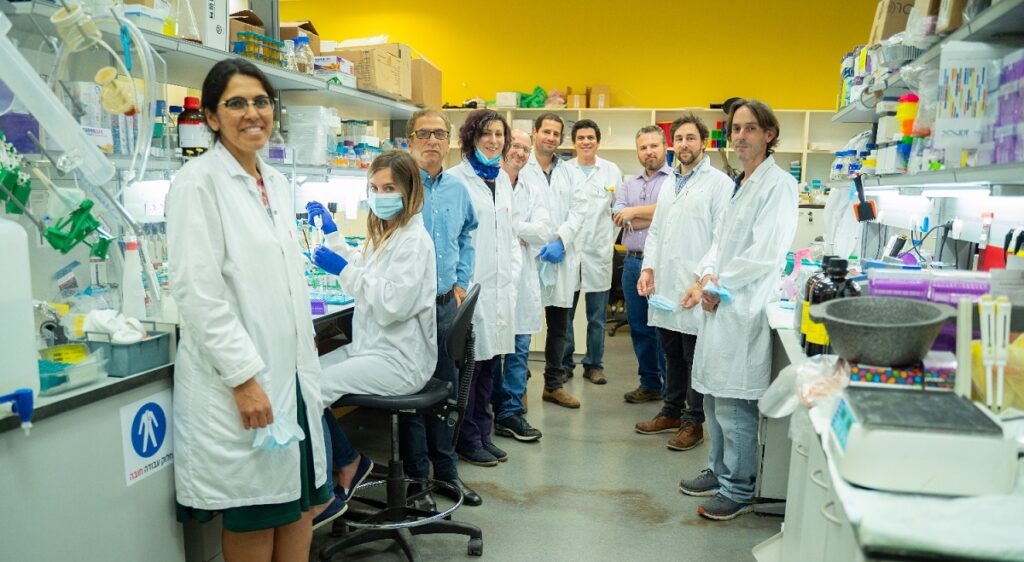Israel’s MigVax, the affiliate company established by Israeli scientists at the Migal Galilee Research Institute to develop a vaccine for the coronavirus, has received a $4.3 million award from Norway’s Coalition of Epidemic Preparedness Innovations (CEPI) to help support the initial development of its COVID-19 oral subunit vaccine tablet.
The funding is part of a $200 million CEPI program to advance the development of vaccines that provide broad protection against variants of COVID-19 and other beta coronaviruses.
Canada’s University of Saskatchewan also received a CEPI funding award for its Vaccine and Infectious Disease Organization. The CEPI will support the researchers of these two institutions as they seek to establish preclinical proof of concept for novel vaccines suitable for use in low-and-middle-income countries that are broadly protective against COVID-19 variants, the CEPI announcement said.
“We are gratified that CEPI shares our conviction that a subunit oral vaccine tablet could help the world return to a ‘new normal’ in the ‘day-after-the-pandemic’ reality. In fact, 20 months into the COVID crisis, it is clearer than ever that the struggle to keep the disease under control will be nearly as challenging as getting it under control to begin with,” said David Zigdon, CEO of MigVax Ltd,& CEO of MIGAL Galilee Research Institute.
“Oral boosters such as our MigVax-101 which could protect against emerging COVID-19 variants will help health organizations transition from panic mode to routine, reducing the cost and expanding the reach of their vaccination programs. We will take full advantage of this grant to bring it to market faster and explore the potential use of our vaccine platform against other coronaviruses,” he added.
Israeli scientists from Migvax developed the MigVax-101 when they realized a vaccine they had developed for a deadly virus affecting poultry could be adapted for human use against the novel coronavirus and severe acute respiratory syndrome coronavirus 2 (SARS-CoV-2).
MigVax focused on making the MigVax-101 booster an oral vaccine because while this vaccine offers the same level of antibody neutralization as an injection, distributing it orally provides significant advantages over the current injectable vaccines.
In June, the company announced that its oral COVID-19 vaccine performed well on rodents in preclinical trials.
Migvax said that the promising results demonstrated the effectiveness of the vaccine as a booster for previously vaccinated persons and indicated that, with funding, it is on track to go to market in as early as nine months to a year.
CEPI said the awards announced last week have been issued in response to a CEPI Call for Proposals issued in March, and additional awards are expected to be announced shortly. The program forms part of CEPI’s next five-year plan, published in March, which aims to reduce or even eliminate the future risk of pandemics and epidemics.
Launched in Davos, Switzerland in 2017, CEPI is a partnership between public, private, philanthropic, and civil organizations to develop vaccines against future epidemics. Before COVID-19, CEPI’s work focused on developing vaccines against the Ebola Virus Disease, Lassa virus, Middle East Respiratory Syndrome coronavirus, Nipah virus, Rift Valley Fever virus and Chikungunya virus. It has over 20 vaccine candidates against these pathogens in development. CEPI has also invested in new platform technologies for rapid vaccine development against unknown pathogens (Disease X).
During the pandemic, CEPI initiated multiple programs to develop vaccines against SARS-CoV-2 and its variants with a focus on speed, scale, and access.
Related posts

Israeli AI Safety Tool Among TIME’S Best Inventions For 2024

TAU Team Discovers Mechanism To Eliminate Cancerous Tumors

Ashdod Port Investing In Startups As Part Of Innovation Strategy




Facebook comments